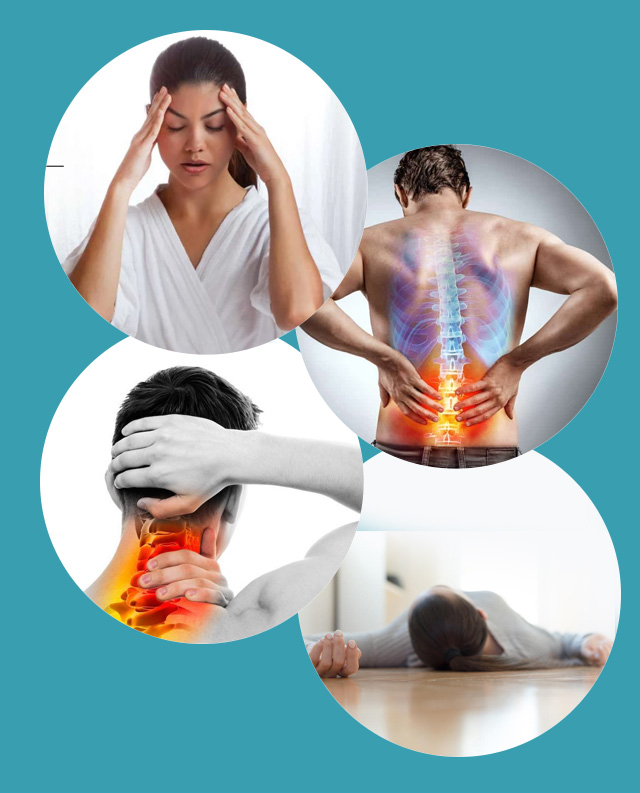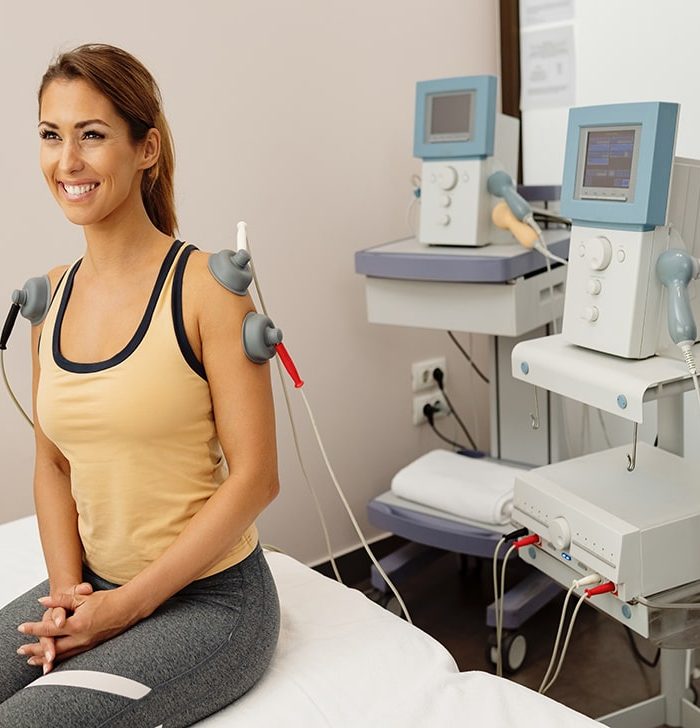Neuromuscular Disorders Treatment In Bangalore
- Advanced neurosurgical care provided
- Online and offline consultations available
- In-depth diagnoses and treatment offered
- 24x7 emergency services provided
- Highly experienced neurosurgeons and spine specialists
What is Neuromuscular Disorders?
Neuromuscular disorders refer to a group of diseases that affect the nerves and muscles, causing weakness and impairing movement. There are various types of neuromuscular disorders, each with their own causes, symptoms, and treatments.
Some common neuromuscular disorders include muscular dystrophy, myasthenia gravis, and neuropathy.
- Muscular dystrophy is a genetic disorder that causes progressive muscle weakness and degeneration
- Myasthenia gravis is an autoimmune disorder that affects the communication between nerves and muscles, leading to muscle weakness and fatigue
- Neuropathy is a disorder that affects the nerves outside of the brain and spinal cord, causing weakness, numbness, and pain.
Symptoms of Neuromuscular Disorders
The symptoms of neuromuscular disorders can vary depending on the specific condition and the extent of nerve or muscle involvement. However, some common symptoms of neuromuscular disorders include:
Symptoms:
- Muscle weakness
- Muscle wasting or atrophy
- Cramps and twitching
- Fatigue
- Sensory changes
- Difficulty with motor skills
- Breathing difficulties

At NeuroWellness, we understand the impact that neurological conditions can have on your life. Our team of experts are dedicated to provide exceptional care and helping you regain control.
Neuromuscular Disorders Treatment
Treatments for neuromuscular disorders depend on the type and severity of the condition. Medications, physical therapy, and assistive devices may be used to manage symptoms and improve mobility. In some cases, surgery or other medical interventions may be necessary.
Medications
There are several medications that can help manage symptoms of neuromuscular disorders.
Physical therapy
Physical therapy can help improve muscle strength, flexibility, and mobility. A physical therapist can develop a customized exercise program to help strengthen weak muscles, improve coordination, and prevent muscle wasting.
Assistive devices
Assistive devices, such as braces, walkers, or wheelchairs, can help improve mobility and reduce the risk of falls or injuries. Some people may also benefit from specialized equipment, such as communication devices or breathing machines.
Surgery
In some cases, surgery may be recommended to correct structural abnormalities or relieve pressure on nerves.

Causes of Neuromuscular
Some of the causes may include:
- Genetic mutation
- Viral infection
- Autoimmune disorder
- Hormonal disorder
- Metabolic disorder
- Dietary deficiency
Classifications of neuromuscular disorders
Some of the major diseases which affect the neuromuscular system are classified into four main groups
- Motor neurone diseases
- Neuropathies
- Neuromuscular junction disorders
- Myopathies including muscular dystrophies

A great place for neurosurgery and neurological conditions
At NeuroWellness, we prioritize patient safety and comfort. Our state-of-the-art facility is designed to provide a warm and welcoming environment for patients and their families. We also offer post- operative care and rehabilitation services to help patients recover and regain their quality of life.
20 +
years of experience
doctor theme
What people say about brain and spine care
980 +
Happy Patients
My uncle had Basilar artery stenosis. He was referred to Dr.Ganesh V. It was identified that there was 70% occlusion of right vertebral artery and,90% occlusion of Basilar artery. Dr.Ganesh did the procedure with his
excellent team so well that the Basilar artery blood flow was restored. Thank you Doctor for explaining in detail about uncle condition and giving new lease of life to my uncle. Forever grateful to you and your team. Highly recommend Dr.Ganesh for Neuro wellness of brain and spine.
Niranjani Ellinor
My son Bhuvan Singh aged 4yrs, was suffering from swelling in spine cord, which was a serious long term issue for him. We searched for a good Neurosurgeon, then my cousin suggested me to Dr. Ganesh V, we visited Dr. Ganesh V and explained the
concern.
Dr. Ganesh V explained each and everything very clearly that he was diagnosed with Duastem metamylia, a very rare type of problem and made us so confident to undergo the surgery. My son underwent Split cord reair which was almost 8hrs surgery After the surgery, my son is completely normal as usual.
Dr. Ganesh this the best ever Neurosurgeon, we are very glad we met the right doctor, he is the b st. Our sincere thanks to Dr. Ganesh V. We will definitely refer any sort of Neuro related problem to Dr. Ganesh V only. Thanks to the entire team..
Devendra Singh
A few months ago I had a gym accident which I recognised a month later after incident took place that there is something wrong .I had my shiver all the time and was not having good balance to walk like normal .when diagnosed by sir I got to know my D6- 7-8 were in great danger and there was also a probability that I could loose my lower body sensation. But thanks to sir he has been a very good support to me and my family. He performed a surgery and it was great success. Now I have recovered completely and feel normal agin thanks to Ganesh sir for all of this .and supposedly his junior manjunath sir thank u both.
Jayanth .N Gowda
Dr. GANESH .V…. One of the best Neuro surgeon I hv ever met I was suffering from Trigeminal Neurologia for 5yrs with a
unbearable pain….After all medication for 5yrsthe pain did not reduce … finally we met Dr. Ganesh.V n opted for brain surgery a week ago n now m feeling much much better all thanks to Dr Ganesh for explaining abt the procedure in detail..as I also had a heart issue(pace maker) my family was very tensed n worried untill I came out of the OT…. everything went smoothly, live long doc God bless…. n I must thank
Dr.manjunath thank you so much doc for all you support.. n of course how can I forget Priya thanks a ton to you dear for being there all the time when ever needed u responded so well …
I am thankful to the whole team who took very good care of me… God bless you all
Karumbaiah
I was suffering from severe spine problem. I consulted Dr. Ganesh V, he is an excellent doctor. After surgery I am absolutely fine. I am extremely thankful to doc. Highly recommend every patient. Very happy. 100% satisfied best doctor.
V vishwnath koppad
I was suffering from severe back pain along with both the legs with Lumber Spondylosis. Consulted with Dr Ganesh, and after the successful surgery by Dr Ganesh, I’m full cured. Thanks to his excellent expertise which will help lots of patients like me to get back in normal life.
Deb Bindu Ballav
Frequently Asked Questions
Some of the most common neuromuscular disorders include muscular dystrophy, myasthenia gravis, ALS (also known as Lou Gehrig’s disease), and spinal muscular atrophy.
Diagnosis of neuromuscular disorders typically involves a combination of physical examination, medical history, and diagnostic tests, such as blood tests, nerve conduction studies, electromyography (EMG), muscle biopsy, and imaging tests like MRI or CT scan.
The prognosis for people with neuromuscular disorders varies widely depending on the specific condition and the severity of symptoms. Some neuromuscular disorders are progressive and can lead to disability or life-threatening complications, while others may have a milder course. It’s important to work closely with a healthcare provider to manage symptoms and develop a long-term care plan.
